Follow Us
Medical & Health Sciences Latest

Rethinking Responsive Feeding: New Insights from Bangladesh
By Dr Maureen Black Feeding young children is a complex and nuanced process that goes far beyond simply providing nutritious food. How caregivers interact with children during mealtimes can have profound effects on...

Cancer Under Pressure: Managing Malignant Spinal Cord Compression
By Professor Michael McKay Malignant spinal cord compression is a common complication of advanced cancer, which can lead to major health problems if it is not discovered and treated urgently. Professor Michael McKay is based at the North West Cancer Centre...

Dr. Petr Kelbich | Investigating Inflammatory Conditions in Extravascular Body Fluids: An Important New Parameter
Diagnosing disorders of the brain and other organs can often feel like solving a challenging puzzle. Analyzing non-blood body fluids provides valuable clues that can help address this complexity. To enhance this process, Dr. Petr Kelbich from Jan Evangelista...

Professor JoAnne S. Richards | Revealing the Secrets of the Ovary
Professor JoAnne S. Richards conducts her vital research at the Baylor College of Medicine in Houston, Texas, in the USA. For decades she has investigated how certain hormones regulate ovarian function at particular stages of the menstrual cycle, as well as...
Earth, Environment & Agricultual Sciences

Renewable Fuel for a Generation of Green Batteries
Revolutionizing energy production has been integral to combatting climate change and reducing our dependence on limited natural resources, but complementary advances in energy storage have been lacking. Dr Thomas Guarr and Dr David Hickey from Michigan State University lead their team in investigating a counterintuitive molecular mechanism which could support a wave of green, renewable, and cheap batteries. If practical, this technology might be the crucial leap towards an entirely green energy system.

RK Pete Wade | Seeing the Wood for the Trees – A Better Way to Measure Forest Density
In the world of forestry, understanding how densely packed trees are in a given area is crucial for effective forest management. However, traditional methods for measuring this ‘stand density’ have limitations. Now, a new approach developed by an independent...
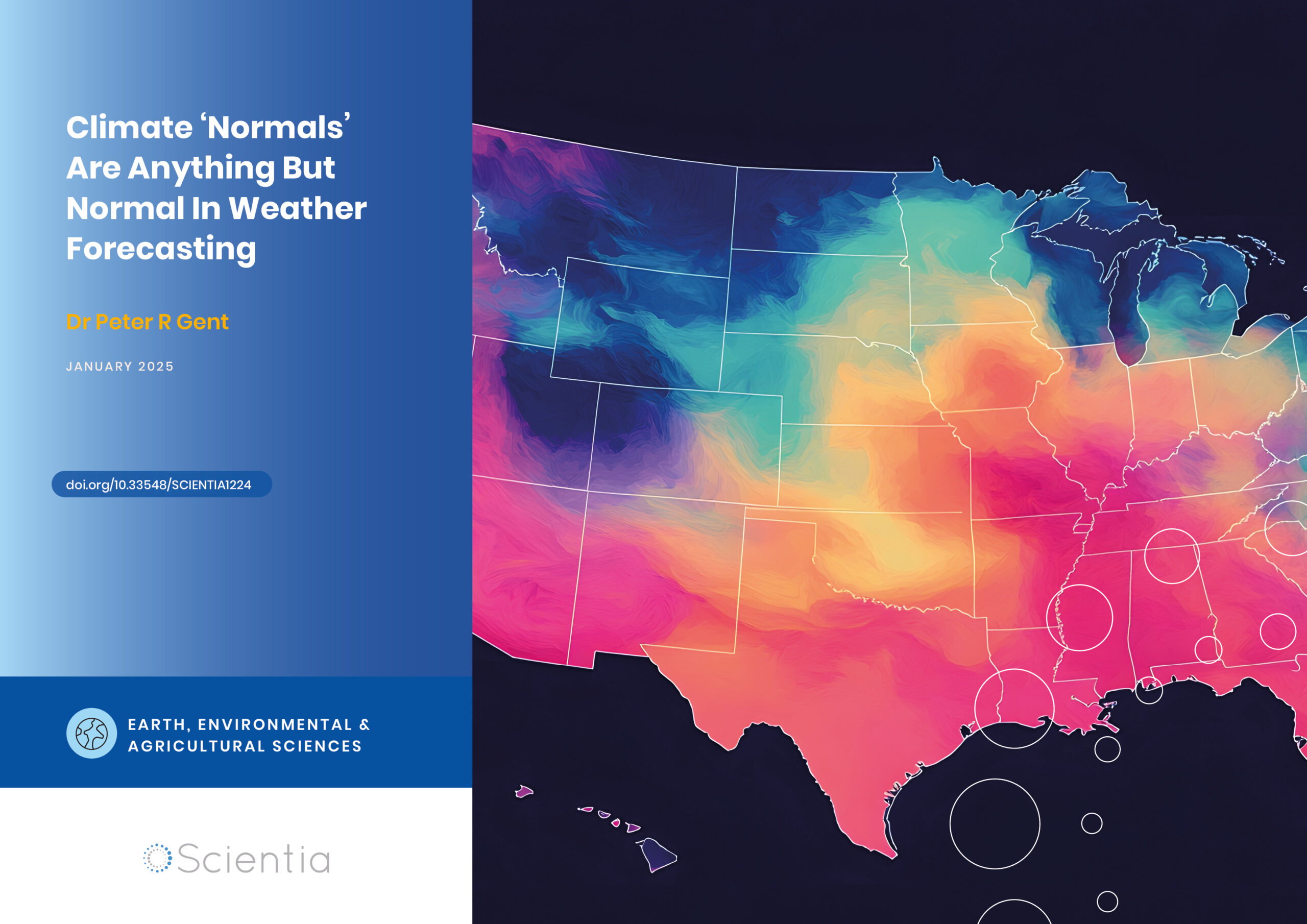
Dr Peter Gent | Climate ‘Normals’ Are Anything But Normal In Weather Forecasting
Weather forecasters and meteorologists have long used the term ‘climate normal’ to describe average temperatures, but this seemingly innocuous phrase might be causing widespread public misunderstanding. New research suggests that describing temperature data as...

Dr Yassine Ait Brahim | When the Sahara Grew Green: Constraining the ‘Green Sahara’ Across Time and Space
Understanding the dynamics of Earth’s ancient climate is an important avenue of research. By examining past climate variability, we can improve our understanding of natural climate cycles and factors influencing current climate change. Dr Yassine Ait Brahim of...
Physical Sciences & Mathematics Latest

Renewable Fuel for a Generation of Green Batteries
Revolutionizing energy production has been integral to combatting climate change and reducing our dependence on limited natural resources, but complementary advances in energy storage have been lacking. Dr Thomas Guarr and Dr David Hickey from Michigan State University lead their team in investigating a counterintuitive molecular mechanism which could support a wave of green, renewable, and cheap batteries. If practical, this technology might be the crucial leap towards an entirely green energy system.
Engineering & Computer Science Latest

Dr David Nairn | Time-Interleaved Analogue-to-Digital Converters: Breaking Speed Barriers in Digital Signal Processing
In our increasingly digital world, the ability to convert analogue signals into digital data quickly and accurately is crucial for everything from mobile phones to medical devices. Dr David Nairn from the University of Waterloo, Ontario, has been at the forefront of developing and improving time-interleaved analogue-to-digital converter technology to enable faster and more efficient digital signal processing. His work is helping to overcome key challenges in high-speed digital systems, paving the way for more advanced electronic devices.
Arts, Humanities & Social Sciences Latest

Dr Festus O Amadu | The Forests of Liberia: A Pathway to Poverty Alleviation and Food Security
In Liberia, half of the population lives within 2.5 kms of a forest. Many households rely on these delicate ecosystems to support themselves. A recent study by Dr Festus O Amadu at Florida Gulf Coast University and Dr Daniel Miller at the University of Notre Dame sees sustainable forest management as a positive force in improving livelihoods and environmental outcomes in Liberia. The authors have produced a landmark national analysis of how participation in the ‘forest sector’ impacts Liberian households – providing policymakers with the evidence they need to prioritise development programmes.
Life Sciences & Biology Latest

Illuminating Neanderthal Resilience and Adaptability through Cutting-Edge Zooarchaeology
Neanderthals, our closest extinct human relatives, have often been portrayed as brutish and primitive compared to modern humans. But new research is shedding light on their true capabilities. Eboni Westbury from the Australian National University is part of a team investigating how Neanderthals adapted and thrived in challenging Ice Age environments. Their work at the Abric Pizarro rock shelter in Spain reveals new insights into the complex behaviours and survival skills of these ancient people.

Dr Benjamin Bradley | Cause, Consequence, and Natural Selection: A New Vision of Darwin’s Psychological Work
The theory of evolution by natural selection stands at the heart of modern biology. But what exactly is the causal status of natural selection in evolution? Dr Benjamin Bradley from Charles Sturt University in Australia is challenging long-held assumptions,...

Professor JoAnne S. Richards | Revealing the Secrets of the Ovary
Professor JoAnne S. Richards conducts her vital research at the Baylor College of Medicine in Houston, Texas, in the USA. For decades she has investigated how certain hormones regulate ovarian function at particular stages of the menstrual cycle, as well as...

Professor Sung-Hou Kim | New Insights into Ethnic and Genomic Diversity
Does our ethnic diversity translate to genomic diversity? New findings suggest that it might not and point instead to considerable genomic similarities across multiple ethnicities. Professor Sung-Hou Kim at the University of California, Berkeley, and his...
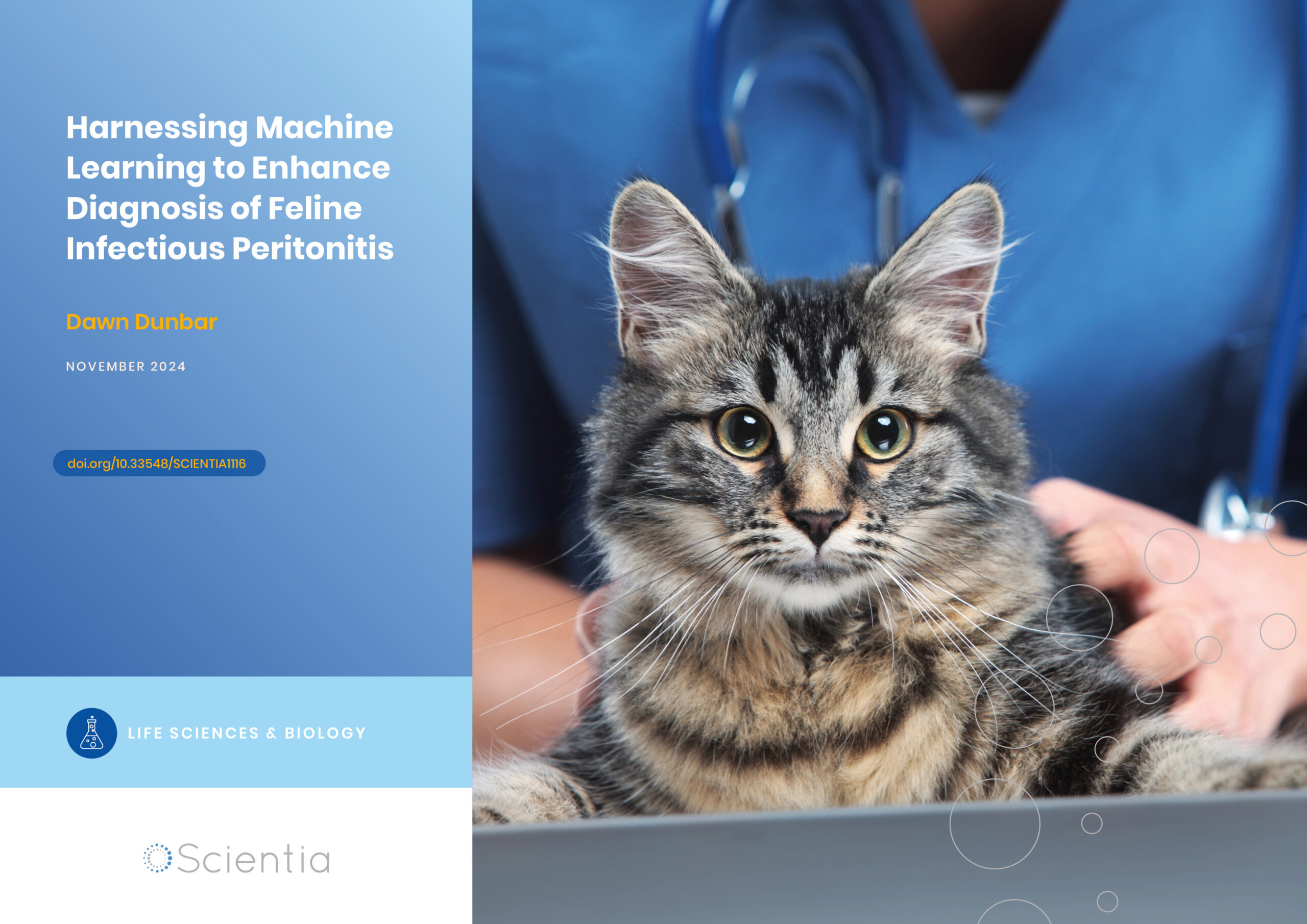
Dawn Dunbar | Harnessing Machine Learning to Enhance Diagnosis of Feline Infectious Peritonitis
Feline infectious peritonitis (FIP) is a severe and often fatal viral disease of cats which poses significant diagnostic challenges for veterinarians. Dawn Dunbar from the University of Glasgow is leading a research study with the goal of applying machine...

Professor Irene Díaz-Moreno – Professor Miguel A. De la Rosa | The Diverse Interactome of Cytochrome c: Beyond Respiration
All living things are comprised of cells, and to function, most of them use oxygen to break down food molecules to obtain chemical energy, a process known as cell respiration. Critical to this is the macromolecule cytochrome c, but this redox haemoprotein also...
Education & Training Latest

The BASIL CURE Initiative: Transforming How Students Learn Biochemistry Through Real Research
Teaching students how to think like scientists is a critical but challenging goal in biochemistry education. The Biochemistry Authentic Scientific Inquiry Lab (BASIL) initiative was conceived by Dr Paul Craig from the Rochester Institute of Technology and is led by colleagues across multiple institutions. They have developed an innovative curriculum that transforms traditional cookbook-style laboratory courses into authentic research experiences, also known as a Course-based Undergraduate Research Experience (CURE). By investigating real proteins with unknown functions, students learn essential scientific skills while expanding our knowledge of protein biochemistry.

Professor Jean-Anne Stewart | Making Virtual Action Learning Effective for Leadership Development
New research shows that virtual action learning can be just as beneficial as face-to-face sessions for developing leadership skills, when implemented thoughtfully. A UK study of over 300 senior leaders by Professor Jean-Anne Stewart of Henley Business School at...
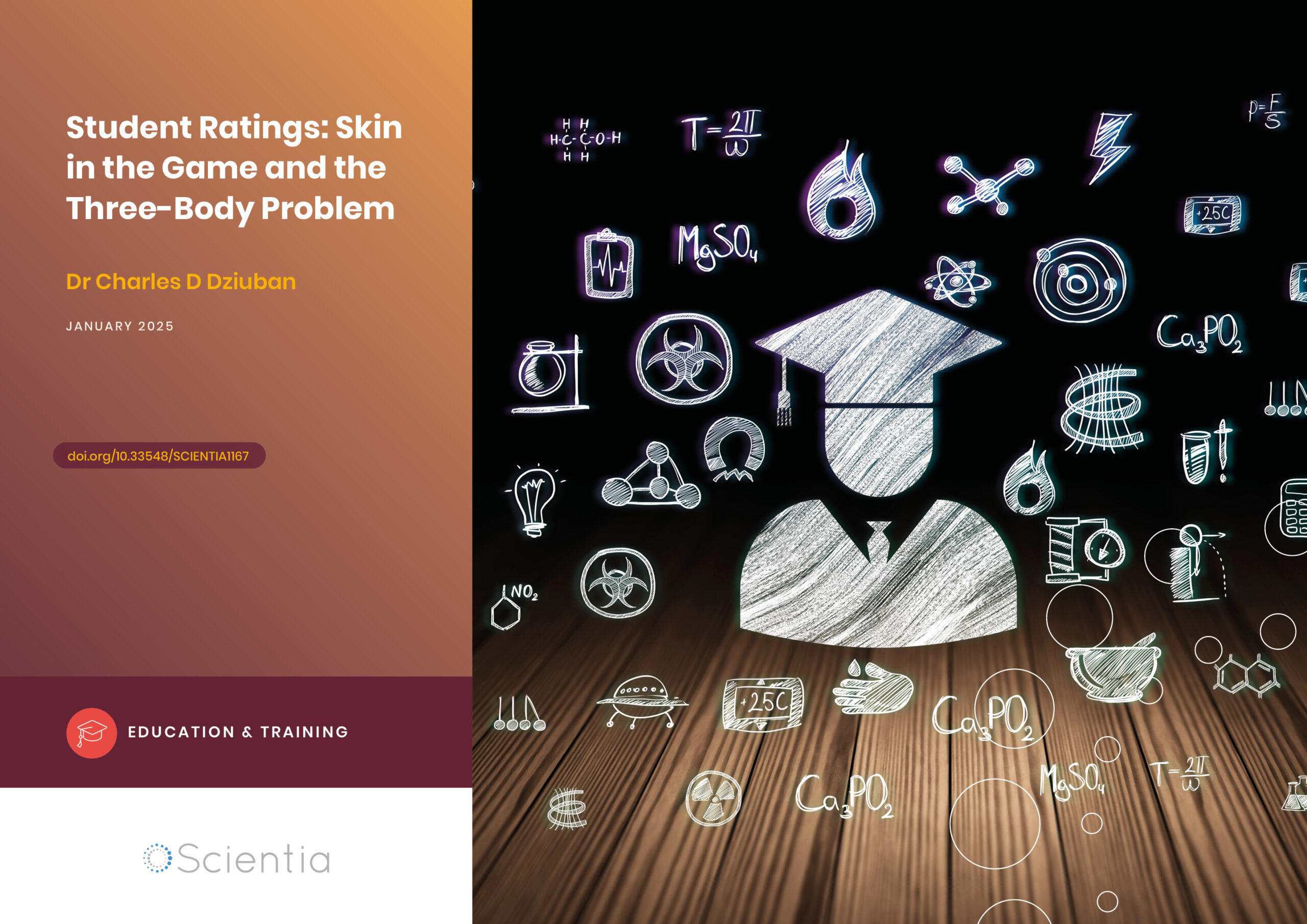
Dr Charles Dziuban | Student Ratings: Skin in the Game and the Three-Body Problem
An ongoing concern in higher education is how to include the student voice in teaching. Dr Charles Dziuban has dedicated much of his career to examining student and faculty outcomes as well as gauging the impact of online, blended and lecture capture courses in...
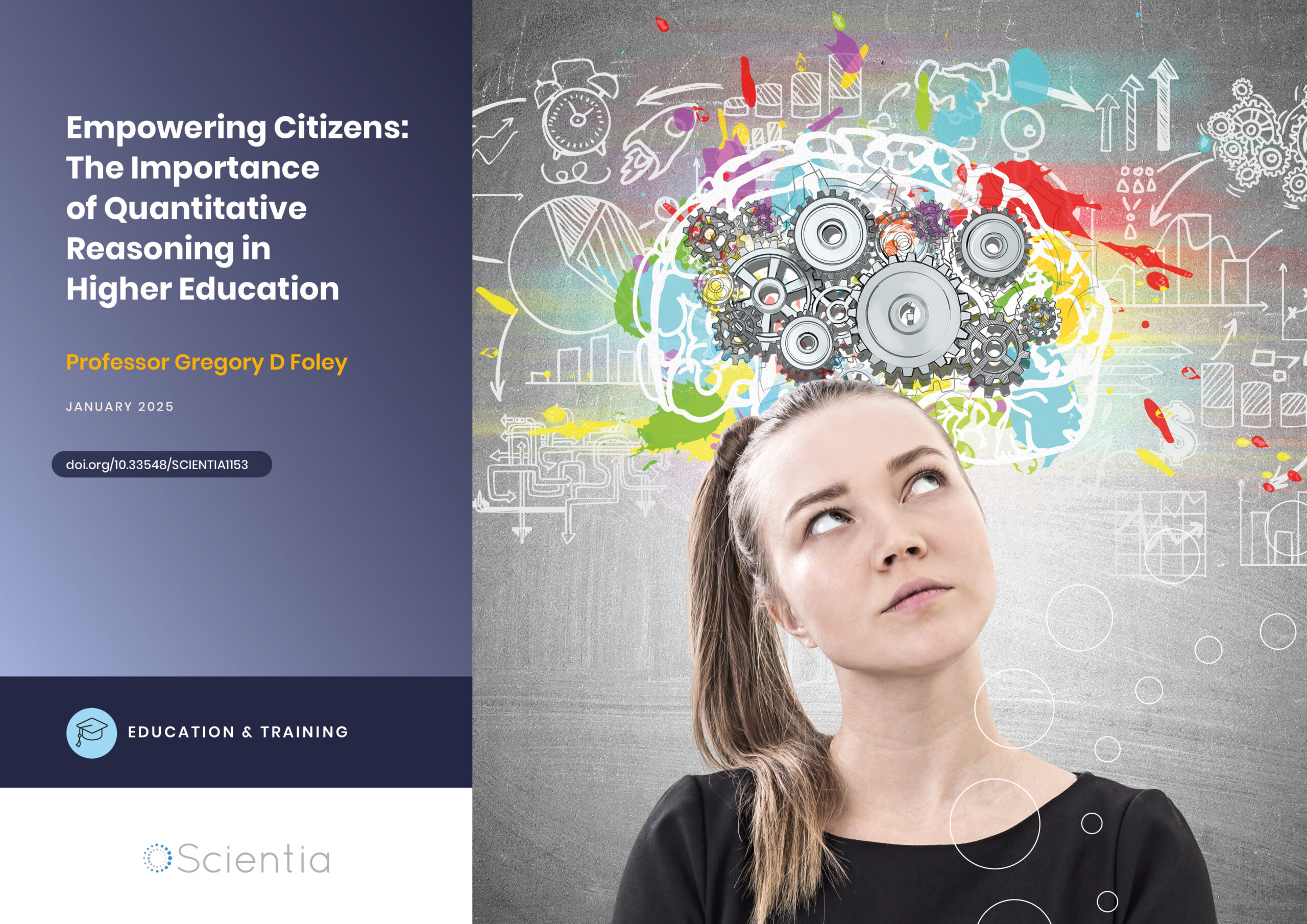
Professor Gregory D Foley | Empowering Citizens: The Importance of Quantitative Reasoning in Higher Education
Despite a growing emphasis on Quantitative Reasoning in education, particularly as universities develop courses that move beyond traditional math, its role in fostering critical citizenship remains underexplored. Professor Gregory D Foley’s research studies the...
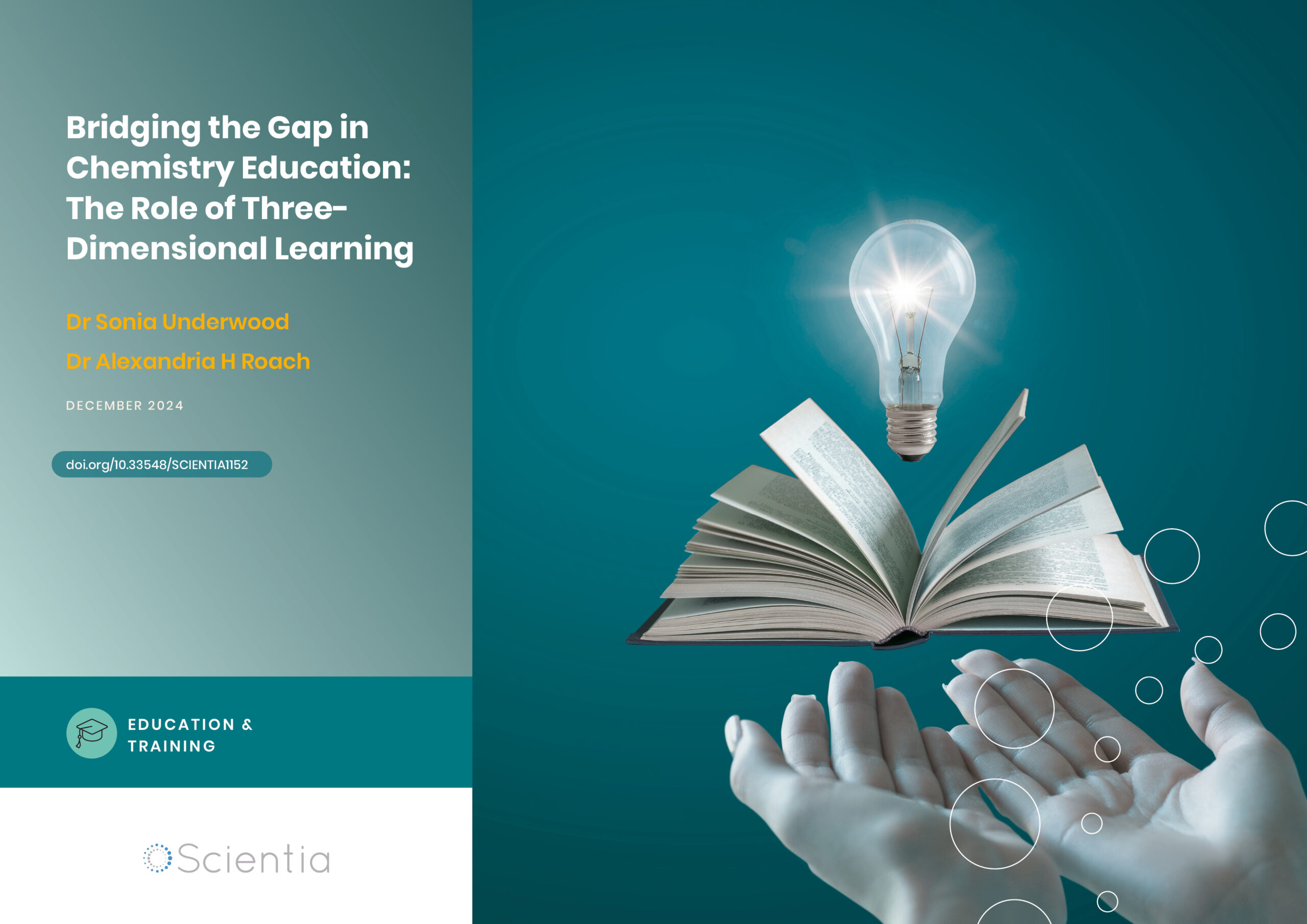
Dr Sonia Underwood | Bridging the Gap in Chemistry Education: The Role of Three-Dimensional Learning
Understanding complex concepts in chemistry can be challenging for students, especially in large classes where individualised attention is limited. Traditional multiple-choice questions often focus on rote memorisation rather than deep understanding. Dr Sonia...

Dr Aimie Brennan | Challenging the Changing Landscape of Initial Teacher Education
Initial teacher education in Ireland was reconceptualised in 2011 to embody a more practical, solution-based ethos in place of the traditional emphasis on foundational subjects such as sociology. Dr Aimie Brennan of the Marino Institute of Education and Dr...
Psychology & Neuroscience Latest

Dr Benjamin Bradley | Cause, Consequence, and Natural Selection: A New Vision of Darwin’s Psychological Work
The theory of evolution by natural selection stands at the heart of modern biology. But what exactly is the causal status of natural selection in evolution? Dr Benjamin Bradley from Charles Sturt University in Australia is challenging long-held assumptions, arguing that Darwin himself saw natural selection as a consequence of other processes, not a cause of evolution in its own right. This crucial distinction opens up new perspectives on how evolution relates to psychology and behaviour.

Professor Steven Wayne Evans | Making a Difference for Adolescents with Attention-Deficit/Hyperactivity Disorder
Tailored interventions are required if adolescents with Attention-Deficit/Hyperactivity Disorder (ADHD) are to meet their full potential. Research by Professor Steven Evans at Ohio University illuminates the effectiveness of these interventions and offers...

Dr Robert W Stackman, Jr – Dr Sarah J Cohen | Of Mice and Matching: When Rodents Show They Can Match Pictures to Objects
Researchers at Florida Atlantic University have discovered that mice possess a sophisticated cognitive ability previously thought to be limited to primates and certain bird species – they can recognise real objects after only seeing pictures of them. This...

Dr Dagmar Zeithamova | How Our Brains Create Categories: A Look Inside the Mind
Our brains have an incredible ability to organise information into meaningful categories, allowing us to make sense of the world around us. However, this categorisation process can also bias how we perceive and remember this world. Dr Dagmar Zeithamova and her...

Leadership – How Does Successful Leadership Work in Times of Change?
Article written by Dr Barbara Nuetzel Challenges for Leaders in Today’s World The digital revolution has changed our world – ‘VUCA’ – the conditions which now shape the lives of many people worldwide. VUCA stands for volatility, uncertainty, complexity, and...

Professor Marco Cavaglià | Unlocking the Brain’s Hidden Code: The Lipid-Centred Theory of Brain Functioning
For decades, scientists have explored how the brain processes information, stores memories, and generates thoughts. Traditional theories focus on the electrical and chemical signals exchanged between neurons. However, a new and innovative approach is emerging,...
Business, Economics & Finance Latest

Christopher Gilbert | A Thorough Inquiry into Copper Super-Cycles
Understanding super-cycles is crucial for stakeholders such as investors, policymakers, and industry leaders as it offers insights into long-term trends and dynamics in commodity prices. Christopher Gilbert plays a pivotal role in providing stakeholders with the foresight needed to navigate fluctuations in metal prices and volatile markets confidently.

Dr Britta Holzberg | Stitching Together a Fairer Future: Insights from the Global Garment Industry
The global garment industry spans continents, cultures, and livelihoods. Ensuring decent work for the millions employed in its factories is an urgent concern. Dr Britta Holzberg has worked to unravel this intricate web through in-depth case studies in Egypt and...

Stephen O’Byrne | Why Academic Research Has Done Little to Solve the Problems of Executive Pay
Competitive target pay is a basic principle of modern executive pay, embraced by corporate directors, compensation consultants and proxy advisors. Providing a high percent of pay in stock (or other incentive pay) is a second basic principle of modern executive...

Dr Michal Franta – Dr Jan Libich | Distribution Tails, Recession Risks and Macroeconomic Policies
Article written by Dr Michal Franta of the Czech National Bank and Dr Jan Libich of La Trobe University/VSB-TUO. The Global Financial Crisis of 2007–2009 ignited significant reconsideration of financial and economic policies, spurring extensive research efforts...

Professor Karen Hogan | Uncovering the Financial Fallout of Cyber-Attacks
In our increasingly digital world, cyber-attacks pose a significant threat to corporations with their potential to disrupt operations, damage reputations, and ultimately impact shareholder value. Because these attacks are getting more sophisticated, companies...

Dr Simone Farinelli – Dr Hideyuki Takada | Geometric Arbitrage Theory: A New Conceptual Structure in Financial Mathematics
Stochastic finance modelling allows researchers to describe, analyse, and predict the highly variable behaviour of markets. Dr Simone Farinelli (Core Dynamics GmbH, Switzerland) and Dr Hideyuki Takada (Toho University, Japan) are experts in mathematical finance...

Scientia Issue #150 | Big Ideas for a Better World
This riveting issue of Scientia showcases some of the biggest new ideas across science, research, and technology. While we face many challenges, from climate change to cancer, epidemics to economic instability, progress and innovation open exciting windows of opportunity. We are thrilled to showcase the researchers who are ‘thinking big’ and working to make positive changes in our world.
Across Engineering & Computer Science, Earth & Environmental Sciences, Health & Medicine, Physical Sciences & Mathematics, Business, Economics & Finance, Social Sciences, Arts & Humanities, and Psychology & Neuroscience, we read how thinking big is benefiting people and the planet. Our feature Spotlight on SciComm Corner highlights recent and interesting posts from Scientia’s webpages. In this issue, Luke Tyler provides an insightful, compelling argument in support of open access publication.

Scientia Issue #149 | Scientific Strategies for People and Planet
Scientific Strategies for People and Planet This latest issue of Scientia showcases the researchers making innovative advances in improving the health and well-being of people across the globe, as well as those dedicated to ensuring...

Scientia Issue #148 | New Horizons in Research and Discovery
New Horizons in Research and Discovery In this latest issue of Scientia, we showcase some of the most exciting recent advances in research and discovery. Disease, poverty, war, inequality, and climate change are just some of the...

Scientia Issue #147 | Driving Positive Change Through Research and Innovation
DRIVING POSITIVE CHANGE THROUGH RESEARCH AND INNOVATION This inspiring issue celebrates the work of researchers who are driving positive change for the future across diverse disciplines. The Earth and Environment section...

Scientia Issue #146 | Pushing Boundaries in Science and Research
PUSHING BOUNDARIES IN SCIENCE AND RESEARCH This riveting issue of Scientia showcases recent advances across excitingly diverse fields of study, spanning agriculture, linguistics, physics, healthcare, economics, and much more....

Scientia Issue #145 | Discovery, Research and Innovation in Tackling Global Challenges
DISCOVERY, RESEARCH AND INNOVATION IN TACKLING GLOBAL CHALLENGES Our latest issue of Scientia continues our mission to connect science and society. Climate change, diseases that remain without a cure, social injustice and...
PUBLIC ACCESS

No paywalls. No subscription barriers. No language barriers. Simple, instant public access to science—opening a dialogue between science and society.
CREATIVE COMMONS

We publish under the Creative Commons Attribution-NonCommercial 4.0 (CC BY-NC 4.0)
DECLARATION ON RESEARCH ASSESSMENT (DORA)

We support and encourage the DORA initiative
OPEN ACCESS POLICY

Scientia adheres to the open access policy. Open Access (OA) stands for unrestricted access and unrestricted reuse.
DOI

Scientia is officially registered with CrossRef making our research content easy to find, cite, link, and assess.
NO AI

All research articles published by Scientia are crafted by a talented team of humans, without any AI input
